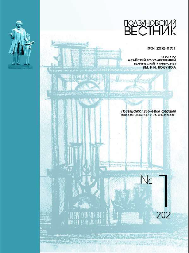DETERMINATION OF CRITICAL CONTROL POINTS IN THE PRODUCTION OF PASTA
doi: 10.25712/ASTU.2072-8921.2021.01.014
Keywords:
technological risks, risk assessment, product quality, corrective actions, product defects.Abstract
Pasta products are popular among the population worldwide and are among the most affordable food products. The level of consumption of pasta products is growing progressively. To reduce the risks of producing low-quality products, food companies must comply with the requirements of TR CU 021/2011 "On food safety". Recipes for pasta based on whole-grain spelt flour with the addition of buckwheat flour, broccoli powders and celery leaves have been developed on the subject of research. The developed products meet the requirements of GOST 54656-2011 "Pasta Products with enriching additives. General specifications". When introducing a new product into production, it is necessary to develop a set of measures to ensure their safety. The purpose of this work was to develop a sequence of actions to identify and reduce risks in the production of pasta. Dangerous factors affecting the safety of pasta are analyzed. Critical control points (CCP) were determined using the "decision tree" method. Research methods according to GOST R 51705.4-2001 "Quality Systems. Food quality management based on HACCP principles. General requirements". A list of potential biological (microbiological), chemical, and physical hazards, as well as critical processes inherent in pasta production, is presented. Risks during the production process, five CCP, as well as critical limits for each CCP and the procedure for preventive and corrective actions when these limits are exceeded are determined. An algorithm for monitoring CCP is presented, which helps to improve the quality and safety of products, reduce defects, and reduce the time to respond to possible problems.
Downloads
Published
How to Cite
Issue
Section
License
Copyright (c) 2021 Alexey A. Korolev, Stanislav O. Smirnov, Oliya F. Fazullina

This work is licensed under a Creative Commons Attribution 4.0 International License.















 .
. This work is licensed under a
This work is licensed under a 
